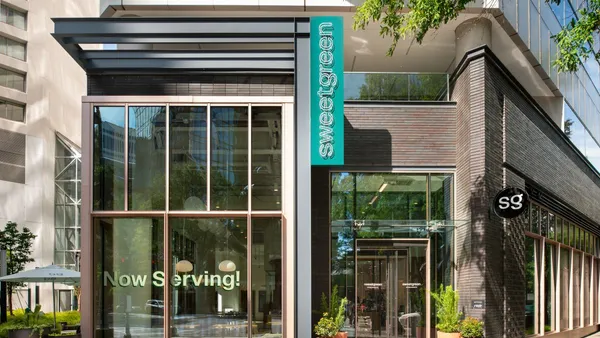Dive Brief:
- A bill approved this week by Washington, D.C., lawmakers mandates restaurateurs provide anti-sexual-harassment training to all employees. A hotline will be set up for employees to call if they suspect their employer is withholding tips as part of the measure.
- According to Restaurant Business, the training piece is aimed at protecting waitresses who are prone to harassment and who earn much of their income through tips.
- The D.C. Council also voted to preserve the tip credit, an employer break which allows restaurants to count servers’ tips toward their minimum wage paychecks.
Dive Insight:
This training mandate follows similar laws passed this month in New York City and earlier in California after accusations against celebrity chefs Mario Batali, John Besh, Mike Isabella and Ken Friedman arose. Sexual harassment is more common in the restaurant space than in any other industry, according to the Harvard Business Review. As many as 90% of women and 70% of men in the industry have reported some form of sexual harassment.
The issue has long plagued the restaurant space, with industry advocacy group Restaurant Opportunities Centers United pinning much of employees' troubles on tipping: “When they are forced to live on tips because their wages are so low … they are having to tolerate all kinds of inappropriate customer behavior in order to feed their families,” ROC United president and co-founder Saru Jayaraman told Nation’s Restaurant News. In other words, the D.C. training mandate may not solve these systemic problems as the tipping credit continues.
But it's a start. As the #MeToo movement continues to unveil high-profile (and not-so-high-profile) offenders of sexual harassment, businesses are finding themselves more vulnerable than ever. Within the past week alone, Chicago-based Rosebud Restaurants was ordered to pay $160,000 to settle a sexual harassment and retaliation lawsuit, for example, just months after the accusations against Mike Isabella led to the Mike Isabella Concepts restaurant group's bankruptcy filing.
Training is just a piece of the puzzle. Following John Besh’s case, his restaurant group rebranded to BRG Hospitality and began displaying anti-harassment posters throughout its units. Restaurateur and writer Karen Leibowitz told the New Yorker that the poster is just one way to make institutional anti-harassment messages ubiquitous. There are also an abundance of training and policy resources available for operators (like ServSafe) while some chains, such as Mooyah Burgers, Fries & Shakes, have implemented their own sexual harassment training sessions.
Restaurants shouldn’t have to rely on jurisdictional mandates to be proactive. As already proven, failure to take initiative on this issue can lead to significant financial and reputational risks.










